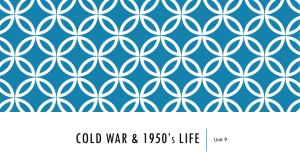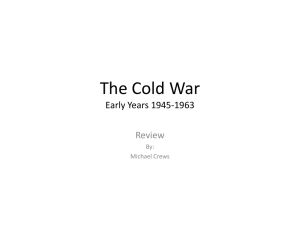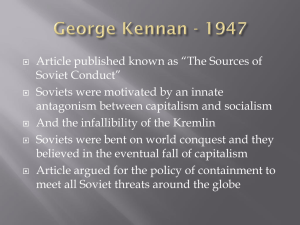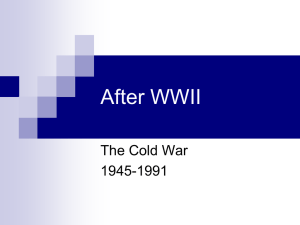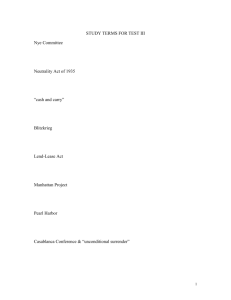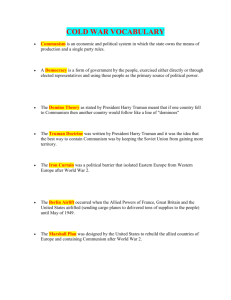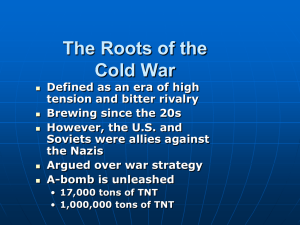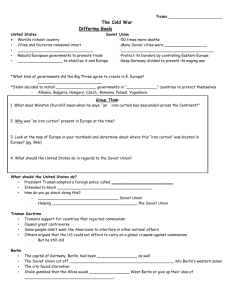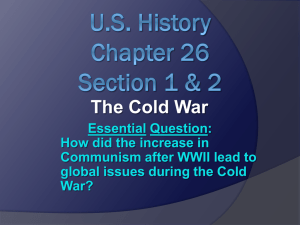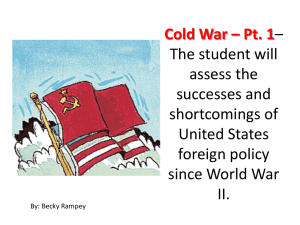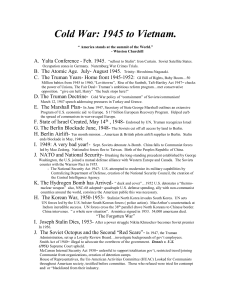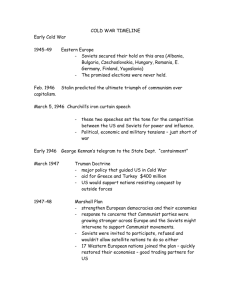Chapter 26 Section 2
advertisement
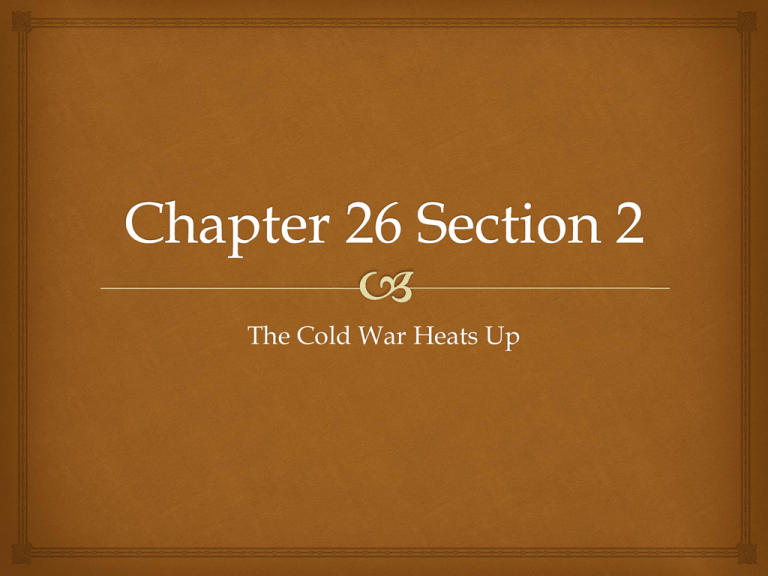
The Cold War Heats Up Marshall Plan Program of American economic assistance to Western Europe Begun in 1947 Developed by Sec of State George Marshall Wanted to develop strong democracies rather than struggling nations that might turn to Communism Invested $13 billion in Western Europe Berlin Blockade 1948- Allies announce plans to unite Western zones in Germany Created West Germany Soviets respond by creating East Germany People in east escaped through West Berlin So Stalin closed West Berlin Willing to let them starve if U.S. did not abandon West Berlin Berlin Airlift Moving supplies into West Berlin by American and British planes during the Soviet blockade in 19481949 13,000 tons of supplied delivered daily Soviets gave up, but Berlin remained a source of conflict How did Berlin’s location make it difficult to supply? It’s about 100 miles deep in Soviet controlled East Germany Difficult for Western Allies to get to What was the importance of the airlift? Allowed West Berlin to remain free from Communist domination Allowed President Truman to avoid military force Show European allies that the U.S. would honor its commitments in Europe North Atlantic Treaty Organization NATO 1949 alliance of nations that agreed to band together in the event of a war and to support and protect each nation involved Led by a U.S. general Large commitment of American troops An attack on one was seen as an attack on all Collective Security The principle of mutual military assistance among nations Warsaw Pact Military alliance between the Soviet Union and the nations of Eastern Europe Soviet response to NATO Formed in 1955 Stalin dead by then Soviet Atomic Threat Soviets successfully detonate an atomic bomb in 1949 In response, Truman wants to move ahead to develop a new weapon Hydrogen bomb-more powerful than atomic bomb Have one by 1952 So do the Soviets China Falls to Communists 1949 Communists lead by Mao Zedong take over in China Assumed to be a failure of Containment and the Truman Doctrine Anticommunist forces under Chiang Kai-shek have to flee to Taiwan Claimed to be the legitimate government of China Represented China in UN House Un-American Activities Committee Established in 1938 Investigated disloyalty in the U.S. Hollywood 10 Group of people in the film industry who were jailed for refusing to answer Congressional questions regarding Communist influence in Hollywood Blacklist List that circulated among employers Began in 1947 Contained the names of persons who should not be hired Usually because of a connection to Communism Real or imagined McCarran-Walter Act Passed by Congress in 1952 Reaffirmed the quota system Discriminated against potential immigrants from Asia, Southern, and Central Europe Vetoed by President Overridden and passed by Congress What did the HUAC hearings and the McCarran-Walter Act show about American attitudes? They demonstrated the paranoia and distrust on the part of Americans toward Communism Spies in the U.S. Alger Hiss Former state department employee FDR advisor at Yalta Truman administration defended Hiss for 2 years Eventually proven to be a spy by a young lawyer named Richard Nixon Spies in the U.S. Julius and Ethel Rosenberg Members of the Communist Party Accused of helping the Soviets obtain the atomic bomb Executed Both Hiss and the Rosenbergs were proven to be guilty years later
